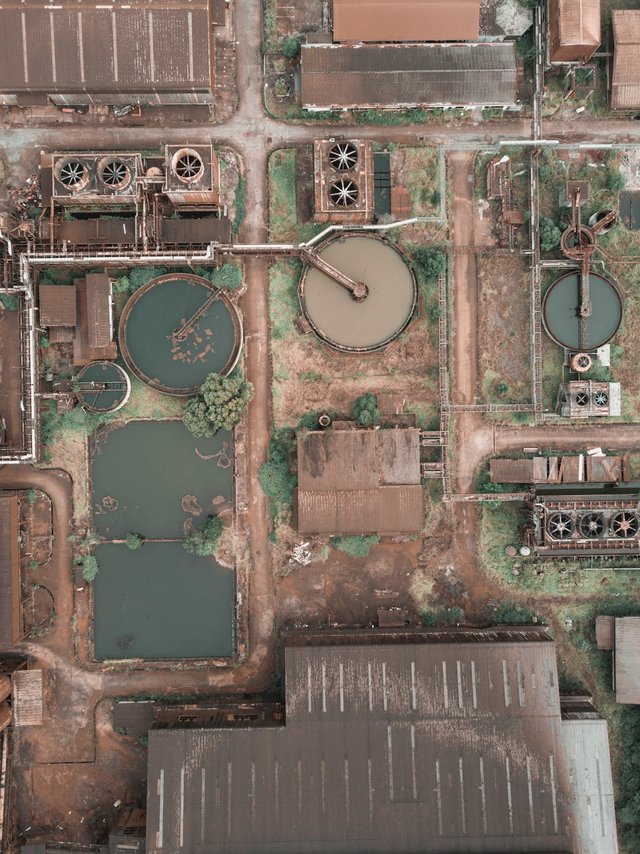Blockchain for a Sustainable Future: Advancing Environmental Conservation and Climate Action

Introduction:
As the global community grapples with pressing environmental challenges and the urgency of climate action, innovative solutions are needed to drive positive change. Blockchain technology, best known for its applications in finance and cryptocurrencies, is increasingly recognized as a powerful tool for environmental conservation and sustainability. In this blog post, we will explore how blockchain is transforming the environmental landscape, promoting transparency, efficiency, and collaboration in environmental initiatives worldwide.
Understanding Environmental Challenges
The world faces a range of environmental challenges, including climate change, deforestation, loss of biodiversity, water pollution, and waste management. We'll explore the scale of these challenges and the need for innovative approaches to address them effectively.
Environmental challenges are pressing issues that impact the well-being of our planet and its inhabitants. Climate change, driven by greenhouse gas emissions, leads to rising temperatures, extreme weather events, and sea-level rise. Deforestation, driven by human activities such as logging and land conversion, threatens ecosystems and contributes to climate change. Loss of biodiversity, as species disappear at an alarming rate, disrupts the delicate balance of ecosystems. Water pollution from industrial and agricultural activities contaminates freshwater sources, affecting human health and wildlife. Improper waste management leads to pollution and the accumulation of plastic and other waste in landfills and oceans, harming the environment.
These environmental challenges are global in scope and require urgent and collective action to mitigate their impact and work towards sustainable solutions. The traditional approaches to environmental conservation have often faced limitations due to issues of transparency, accountability, and cooperation among different stakeholders.
Blockchain technology presents a potential solution to address these challenges by providing a decentralized, transparent, and secure platform for environmental initiatives. It can revolutionize the way we track and manage carbon emissions, protect wildlife, ensure sustainable supply chains, and incentivize eco-friendly behavior. By leveraging blockchain's unique features, we can foster trust, collaboration, and data integrity in environmental efforts, enabling a more effective and impactful response to the pressing challenges facing our planet.
Introducing Blockchain Technology
Before delving into blockchain's environmental applications, we'll provide an overview of blockchain technology, including its decentralized nature, immutability, and cryptographic security. Understanding these fundamental features is crucial to appreciating its potential in environmental conservation.
Carbon Emission Tracking and Management
Blockchain's transparent and immutable ledger enables accurate tracking of carbon emissions and offsets. We'll discuss how blockchain-based platforms can help organizations and governments monitor their carbon footprints, facilitating more effective emission reduction strategies.
Enhancing Supply Chain Sustainability
Blockchain's ability to create transparent supply chain networks has significant implications for sustainability. We'll explore how blockchain helps trace products from their origin to the end consumer, ensuring sustainable and ethical practices throughout the supply chain.
Wildlife Conservation and Anti-Poaching Efforts
Blockchain's tamper-resistant ledger can be leveraged to combat wildlife poaching and protect endangered species. We'll discuss how blockchain facilitates secure data collection, enabling real-time monitoring of wildlife habitats and thwarting illegal activities.
Decentralized Energy Management
Blockchain can revolutionize the energy sector by enabling decentralized energy trading, optimizing energy distribution, and promoting the use of renewable energy sources. We'll explore how blockchain can drive the transition to a sustainable and decentralized energy landscape.
Community-Led Environmental Initiatives
Blockchain's decentralized governance models empower communities to engage in environmental initiatives. We'll discuss how blockchain platforms facilitate transparent decision-making and resource allocation for community-driven conservation efforts.
Building Trust in Environmental Projects
The lack of trust and transparency often hinders fundraising for environmental projects. We'll explore how blockchain-powered crowdfunding and smart contracts foster trust among donors, ensuring that funds are allocated to genuine and impactful initiatives.
Water Resource Management and Blockchain
Water scarcity is a critical issue in many regions worldwide. We'll discuss how blockchain can optimize water resource management, ensuring equitable distribution, monitoring water quality, and promoting responsible usage.
Encouraging Eco-Friendly Behavior with Incentive Programs
Blockchain's tokenization capabilities enable the development of eco-friendly incentive programs. We'll explore how blockchain-based reward systems motivate individuals to adopt sustainable practices, such as recycling and reducing energy consumption.
Blockchain and Circular Economy Solutions
Blockchain technology can facilitate the implementation of circular economy models, promoting the recycling and repurposing of materials. We'll discuss how blockchain enhances traceability and transparency in the circular economy supply chain.
Preserving Ecosystem Data and Research
Blockchain's immutable ledger can secure ecosystem data and research findings for long-term preservation. We'll explore how blockchain supports data integrity and ensures the accessibility of crucial environmental research.
Collaboration and Data Sharing Among Environmental Organizations
Blockchain facilitates secure data sharing and collaboration among diverse stakeholders in the environmental sector. We'll discuss how blockchain networks foster cooperation between NGOs, governments, and research institutions, maximizing the collective impact of conservation efforts.
Addressing Environmental Governance Challenges
Environmental governance requires transparent and accountable systems. We'll explore how blockchain's decentralized governance mechanisms can foster effective decision-making and collaborative efforts in tackling environmental challenges.
Promoting Sustainable Supply Chains in Industries
Blockchain's application extends to various industries, enabling sustainable supply chain management. We'll explore how blockchain enhances transparency and accountability, encouraging industries to adopt eco-friendly practices.
Blockchain technology's potential to promote environmental conservation and sustainable practices is vast and transformative. From carbon emission tracking and wildlife conservation to sustainable supply chain management and community-driven initiatives, blockchain's applications are reshaping the landscape of environmental efforts. Embracing this innovative technology and fostering collaboration among stakeholders are essential for driving positive change and working towards a sustainable future. As blockchain continues to evolve and integrate with environmental initiatives, it holds the promise of creating a greener, more transparent, and resilient world for generations to come.